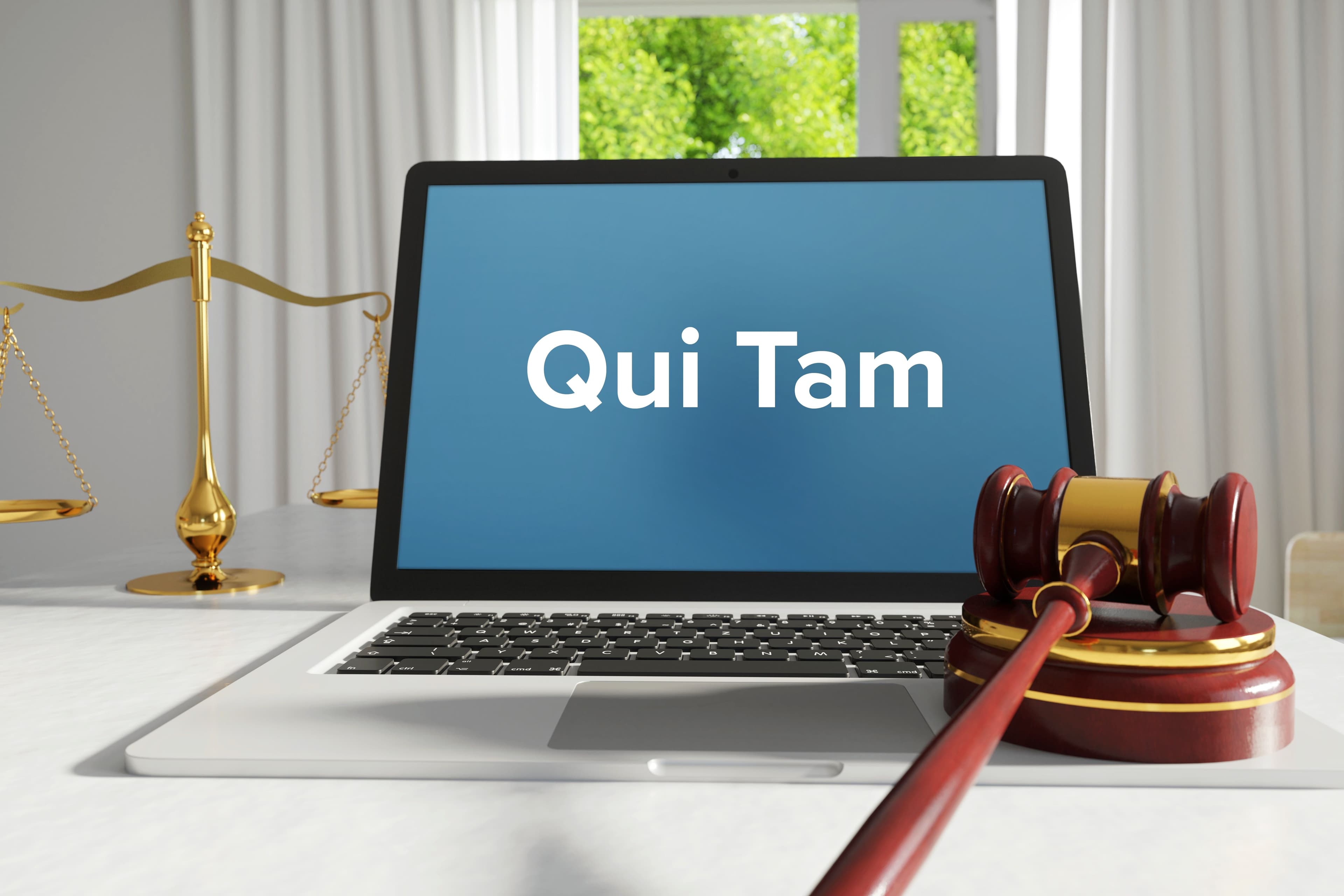Practice Areas
Birmingham Criminal Defense & Family Attorney Practice Areas in Vestavia Hills and Jefferson County
At Joe Ingram Law, our priority is your future. We strive to provide you, our valued client, with high-quality legal representation and compassionate guidance through this overwhelming experience.
As a criminal defense lawyer in Birmingham, Attorney Ingram offers a wide range of legal services to clients throughout Jefferson County and Alabama – our firm focuses on criminal defense and family law. No matter what kind of situation you have on your hands, no matter how complex, rest assured that we can help you resolve your problem and pave the path to a brighter future. Get relief and get results with the dedicated assistance of Joe Ingram Law.

Criminal Defense Services
Facing criminal charges in Alabama requires a strong defense. Joe Ingram Law LLC represents clients in felonies, misdemeanors, DUI/DWI, drug crimes, and federal offenses. We challenge evidence, negotiate plea deals, and fight for dismissals to protect your rights and future.
More
Divorce Law
Family legal matters require experienced guidance. Joe Ingram Law LLC helps with divorce, child custody, alimony, adoption, and domestic violence cases. We work to secure fair outcomes in family disputes, ensuring your rights and the well-being of your loved ones.
More
Municipal Court
Cases in municipal courts may seem minor, but they carry serious consequences. Joe Ingram Law LLC defends clients facing traffic violations, misdemeanors, and local ordinance violations, ensuring fair legal representation and protecting your rights at the local level.
More
Municipal Court
Cases in municipal courts may seem minor, but they carry serious consequences. Joe Ingram Law LLC defends clients facing traffic violations, misdemeanors, and local ordinance violations, ensuring fair legal representation and protecting your rights at the local level.
More
Protection From Abuse
Domestic violence cases require immediate legal action. Joe Ingram Law LLC helps victims obtain protective orders while also defending individuals falsely accused of abuse. We work to ensure fair outcomes, protecting both survivors and those facing wrongful allegations.
More
Criminal Appeals
A conviction isn’t always final. Joe Ingram Law LLC handles criminal appeals, fighting wrongful convictions and unfair sentences. We analyze trial records, identify legal errors, and present compelling arguments to appellate courts, working to overturn convictions or secure reduced penalties.
More
Cybercrime and AI-Generated Crime Defense
As technology evolves, so do cyber-related offenses. Joe Ingram Law LLC defends clients accused of cryptocurrency fraud, identity theft, and AI-generated crimes, ensuring due process in these complex digital cases. We also advocate for victims of cybercrimes seeking justice.
More
Professional License Defense
Your career depends on your professional license. Joe Ingram Law LLC defends doctors, nurses, attorneys, and other professionals facing disciplinary actions, misconduct allegations, or license revocation, helping safeguard their careers and reputations.
More
Fraternity and Sorority Crime Defense
Criminal allegations in fraternities and sororities can have serious consequences. Joe Ingram Law LLC defends individuals accused of hazing, assault, and financial misconduct, while also advocating for victims. We work to protect reputations, futures, and legal rights.
More
Aniah’s Law
Aniah’s Law strengthens Alabama’s bail system, allowing judges to deny bail for violent offenders deemed a threat to public safety. Joe Ingram Law LLC provides legal guidance for individuals impacted by this law, ensuring fair treatment and due process while navigating Alabama’s evolving criminal justice system.
More
Breach of Contract
Broken agreements can put your business at risk. Joe Joe Ingram Law LLC helps clients resolve breach of contract disputes efficiently and effectively. We work to enforce your rights, recover losses, and protect your business interests through skilled negotiation and litigation.
More
Business & Corporate Formation
Starting a business is a significant achievement—and a major investment in your future. Whether you’re an entrepreneur launching your first company or a seasoned business owner expanding your portfolio, Joe Joe Ingram Law LLC is here to help you lay a strong legal foundation for long-term success.
More
Collections for Contractors and Unpaid Debts
Unpaid invoices and overdue accounts can disrupt your cash flow and put your business at risk. Joe Joe Ingram Law LLC helps contractors, service providers, and businesses recover what they’re owed through assertive, efficient collection strategies and legal action when necessary.
More
Durable Power of Attorney
Appointing a trusted person to handle your affairs gives you peace of mind when life is uncertain. Joe Joe Ingram Law LLC prepares durable power of attorney documents, helping you protect your interests and ensure important decisions are made by someone you trust.
More
Living Will
Making your healthcare wishes known is one of the greatest gifts you can give your loved ones. Joe Joe Ingram Law LLC helps clients create clear, enforceable living wills—so your preferences for medical care are respected, even if you cannot speak for yourself.
More
Partition Actions: Sale & Division of Land
Shared ownership of property can lead to disagreements and stalled investments. Joe Joe Ingram Law LLC helps co-owners resolve disputes through partition actions, guiding clients through the legal process to fairly divide or sell land and protect their interests.
More
Qui Tam Lawsuits
Individuals who report fraud against the government can help recover public funds—and may receive a financial reward for their efforts. Joe Joe Ingram Law LLC guides clients through complex qui tam actions, protecting their rights and maximizing their impact as whistleblowers.
More
Shareholder Disputes
Disagreements among business partners or shareholders can threaten the future of your company. Joe Joe Ingram Law LLC helps resolve shareholder disputes efficiently, protecting your investments, rights, and business operations through negotiation, mediation, or litigation.
More
Whistleblower Suits
Speaking up about fraud or illegal activity can be daunting, but whistleblowers play a crucial role in protecting the public and ensuring accountability. Joe Joe Ingram Law LLC stands with individuals who expose wrongdoing, providing skilled legal representation and strong protection against retaliation.
More
Wills
Creating a will is a vital step in protecting your loved ones and ensuring your wishes are honored. Joe Joe Ingram Law LLC helps individuals draft clear, legally-sound wills that provide peace of mind and safeguard your legacy for the future.
More
Workers’ Compensation
Workplace injuries can disrupt your health and financial stability. Joe Joe Ingram Law LLC helps injured workers pursue the benefits they deserve, from medical care to lost wages. We guide you through every step, protecting your rights and future.
More
Drug Use vs. Drug Trafficking in Alabama: Understanding the Difference
Learn the key differences between drug use, possession, and drug trafficking in Alabama. Understand thresholds, penalties, and how Joe Ingram can defend your case.
read articles
Understanding Probation Violations in Alabama and How to Defend Against Them
Learn how probation works in Alabama, what counts as a violation, and the defense strategies that can help protect your future.
read articles
Understanding Complex Custody Battles in Alabama Divorces
Child custody battles in Alabama divorces can be stressful and complex. Learn how Alabama law handles custody, the factors courts consider, and how Joe Ingram Law, LLC helps families protect their children’s best interests.
read articles
Navigating Civil Appeals in Alabama: What You Need to Know
Civil appeals in Alabama are complex and time-sensitive. Learn how the process works, common grounds for appeal, and why skilled legal representation is critical.
read articles
Federal Drug Charges in Alabama: What You Need to Know
Facing federal drug charges in Alabama can mean decades in prison and life-altering consequences. Learn how federal drug cases are prosecuted, the penalties, and the defense strategies available.
read articles
Domestic Violence Charges in Alabama: Understanding the Law and Your Defense Options
Being charged with domestic violence in Alabama can have life-changing consequences. Learn how these cases are prosecuted, what defenses may apply, and why hiring an experienced attorney like Joe Ingram is critical.
read articles
Understanding Criminal Appeals in Alabama: A Second Chance at Justice
Criminal appeals in Alabama give defendants the opportunity to challenge convictions and sentences. Learn how the appeals process works and why having an experienced attorney like Joe Ingram is essential.
read articles
Murder Charges in Alabama: Penalties and Defenses
In Alabama, murder is a Class A felony punishable by 10 years to life in prison. Learn the law, the difference from capital murder, and possible defenses.
read articles
Robbery Charges in Alabama: Penalties and Defenses
In Alabama, robbery is a violent crime that can be charged as a Class A felony punishable by 10 years to life. Learn the degrees of robbery, penalties, and possible defenses.
read articles
Rape Charges in Alabama: Penalties and Defenses
In Alabama, rape is a serious felony punishable by decades in prison and lifetime sex offender registration. Learn the law, penalties, and possible defenses.
read articles
Manslaughter in Alabama: Understanding the Law and Penalties
In Alabama, manslaughter is a serious felony punishable by 2 to 20 years in prison. Learn how it differs from murder, possible defenses, and why legal help is critical.
read articles
Child Pornography Charges in Alabama: Penalties and Defenses
In Alabama, child pornography charges carry harsh penalties including prison and mandatory sex offender registration. Learn the law, possible defenses, and why you need experienced legal help.
read articles
Sodomy Charges in Alabama: Penalties and Defenses
In Alabama, sodomy is a serious sex crime punishable by decades in prison and mandatory sex offender registration. Learn the law, penalties, and possible defenses.
read articles
First Degree Burglary in Alabama: Penalties and Defenses
In Alabama, first degree burglary is a Class A felony punishable by 10 years to life in prison. Learn the legal definition, penalties, and possible defenses.
read articles
First Degree Robbery in Alabama: Penalties and Defenses
In Alabama, first degree robbery is a Class A felony punishable by 10 years to life in prison. Learn the law, possible defenses, and why immediate legal help is essential.
read articles
Sex Trafficking Charges in Alabama: Penalties, Defenses, and What to Expect
In Alabama, sex trafficking is a Class A felony punishable by 10 years to life in prison. Learn what the law says, possible defenses, and why hiring an experienced criminal defense lawyer is critical.
read articles
Drug Trafficking in Alabama: Meth, Fentanyl, Heroin, and Cocaine
In Alabama, drug trafficking involving meth, fentanyl, heroin, or cocaine is a Class A felony with mandatory prison sentences. Learn the penalties, possible defenses, and why quick legal help is essential.
read articles
Shooting Into an Occupied Vehicle or Dwelling in Alabama: A Class ‘A’ Felony
In Alabama, shooting into an occupied vehicle or dwelling is a Class A felony punishable by 10 years to life in prison. Learn what the law says, possible defenses, and why you need immediate legal representation.
read articles
Class ‘A’ Felonies in Alabama: Murder, Homicide, and Violent Crimes
Charged with a Class A felony in Alabama? Learn what Class A felonies are, the penalties you could face, and why having an experienced criminal defense lawyer is critical. Understand the law, possible defenses, and what to do if you or a loved one is accused of a serious violent crime.
read articles
Terminix v. Turner: When Can You Be Forced to Arbitrate
Learn when Alabama courts will enforce mandatory arbitration clauses in service agreements, as explained in Terminix v. Turner. Discover how broad arbitration provisions can limit your right to sue, and what this means for consumers and businesses.
read articles
How Far Away is Medical Cannabis in Alabama
Find out why medical cannabis is still unavailable in Alabama despite being legalized in 2021. This article explains the regulatory delays, licensing issues, and what needs to happen before patients can finally access medical cannabis in the state.
read articles
How to Challenge a Property Value Evaluation
Learn how to challenge a property value evaluation in Alabama, including the legal steps and statutory requirements outlined by the Alabama Supreme Court in Scott v. Alabama Department of Revenue. Protect your home by understanding your rights and the appeal process.
read articles
How To Get A Pardon in Alabama: The Story of a Former Client
Discover how a full pardon can give you a fresh start in Alabama, as shown by a real client’s journey from a troubled past to a successful future. Learn about the pardon process, eligibility, and how Joe Ingram Law helps clients clear old convictions and reclaim their lives.
read articles
The Interplay Between Regular Place of Abode Service of Process
Learn how Alabama courts define “regular place of abode” for service of process, and why using an official address can be sufficient to uphold a lawsuit’s outcome—even if the defendant claims they never received notice. Understand the recent Lewis v. Ojano-Bracco decision and what it means for default judgments.
read articles
Coach Tuberville: Governor or Outsider?
Explore the legal and political questions surrounding Senator Tommy Tuberville’s 2026 bid for Alabama governor. This article examines Alabama’s residency requirements, the “carpetbagger” debate, and why Tuberville’s candidacy is likely to be decided in court.
read articles
What Gregory Hunt’s Death Says About Capital Punishment in Alabama
Gregory Hunt’s execution in Alabama highlights major issues in the state’s capital punishment system, including the use of nitrogen gas, lengthy death row waits, and non-unanimous jury verdicts. Learn what his case reveals about the realities and controversies of the death penalty in Alabama.
read articles
Is a Child Abducted When a Parent Flees the State Before Divorce is Filed?
Find out how Alabama courts define child abduction when a parent relocates with a child before divorce is filed. This article examines the recent Stanford v. Anaya decision and explains what counts as wrongful removal or retention under Alabama law.
read articles
Adams v. Atkinson: How the Alabama Supreme Court Reviews Contracts
Learn how the Alabama Supreme Court interprets contract language in Adams v. Atkinson, focusing on the legal meaning of "hold harmless" versus "indemnify." This decision provides guidance for resolving contract disputes and clarifies how courts approach ambiguous terms.
read articles
Parole In Alabama: How the Proposed Parole Guidelines May Affect You
Learn how Alabama’s proposed parole guidelines may impact parole hearings and pardon rates. This article explains the new scoring system, what it means for inmates and their families, and how it could affect your loved one’s chance for early release.
read articles
United States v. Zayas: The Bank Secrecy Act
Explore the United States v. Zayas decision and learn how structuring financial transactions to evade the Bank Secrecy Act’s $10,000 reporting threshold can lead to federal criminal charges. Understand the standards courts use to determine willful evasion under this law.
read articles
Can You Go to Jail for Not Paying Child Support?
Find out if you can go to jail for not paying child support in Alabama. Learn how contempt of court works, what jail time may result, and what recent court cases reveal about your legal risks when child support payments are missed.
read articles
J.M.M v. State: When Life in Prison is Deserved
Discover why the Alabama Court of Criminal Appeals upheld life sentences for aggravated child abuse in the case of J.M.M. v. State. Learn how courts determine when the maximum penalty is appropriate for child abuse cases involving serious physical injury.
read articles
What is and What Is not First-Degree Assault
Learn what legally qualifies as first-degree assault in Alabama, and what does not, based on recent appellate court decisions. This article explains the key elements of first-degree assault and why not all injuries involving weapons meet the legal standard for serious physical injury.
read articles
Whistleblower Lawsuits: How You Can Be a Hero & Make Millions
Discover how whistleblowers can expose government fraud under the False Claims Act and potentially earn millions in rewards. Learn your rights, legal options, and how to take action today.
read articles
Mulkey v. State: Appealing the Death Penalty
Learn how Alabama appellate courts review death penalty cases and plain error claims. Mulkey v. State shows how appellate safeguards protect defendants’ rights in capital murder appeals.
read articles
Pig-Butchering: A Modern Bank Robbery
Discover how a sophisticated "pig butchering" scam orchestrated by a Malaysian crime syndicate led to a $65 million digital heist. Learn about legal remedies, victim rights, and landmark court cases offering hope for recovering stolen cryptocurrency.
read articles
Sex Offender Restrictions: Can They Be Unconstitutional
The Eleventh Circuit ruled a key Alabama sex offender statute unconstitutional, affirming a father’s right to live with his child. Learn how criminal appeals can protect your rights.
read articles
Juvenile Justice? The case of K.A v. State of Alabama
A look into Alabama’s juvenile justice system through the case of K.A.—examining Miranda rights, sentencing, and the court’s duty to balance justice and rehabilitation.
read articles
The Difficulties of Maintaining a Summary Judgment
Learn how a seemingly simple legal win through summary judgment was reversed in Alonso v. Alpha Phi due to unresolved factual disputes and procedural missteps.
read articles
The Limitations on Criminal Confessions
Learn how the Corpus Delicti rule protects your rights in DUI and drug confession cases. Joe Ingram Law explains how improper police procedures can render a confession inadmissible—and help you beat your charge.
read articles
Taylor v. Humpries: A Failure of Equity and Common Sense.
Explore Taylor v. Humphries, a controversial Alabama court case where a disabled U.S. citizen was denied a state ID due to bureaucratic barriers. This article examines how rigid legal formalism can undermine equity, common sense, and public trust in the justice system.
read articles
Child Custody Across State Lines
Learn how child custody jurisdiction works across state lines under the UCCJEA. Discover how Alabama courts can retain authority even after one parent relocates, and what legal rights you have when custody orders are challenged in another state.
read articles
Custodial Sexual Misconduct and The Sex Offender Registry
Charged with custodial sexual misconduct in Alabama? Learn how a conviction can put you on the sex offender registry, what recent court cases mean for your future, and why legal reform is urgently needed.
read articles
Enforcing Arbitration Agreements Against a Third Party
Learn how Alabama law treats arbitration agreements in estate litigation. Discover when third parties—like executors—can be bound by a decedent’s arbitration clause.
read articlesschedule a consultation




































